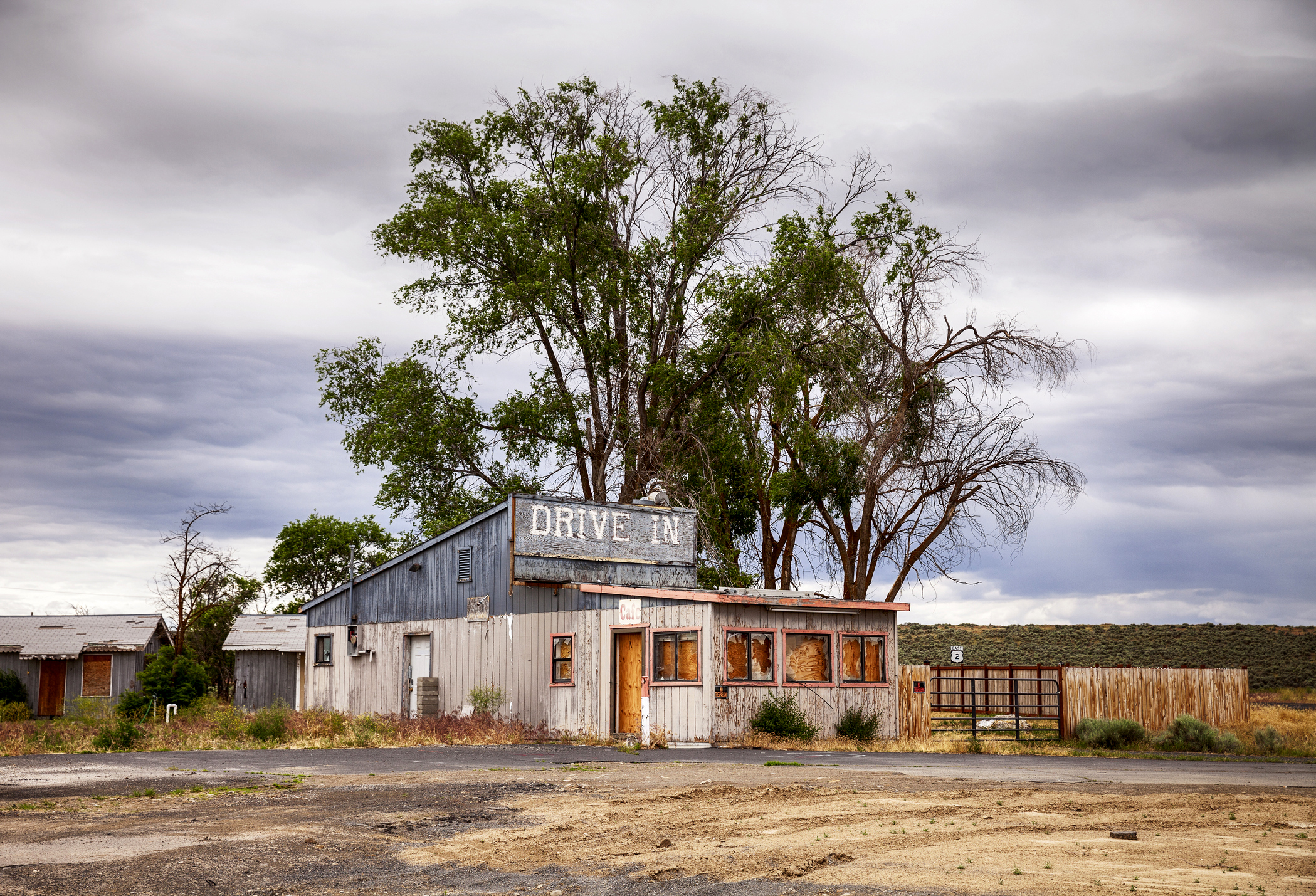How to keep young people from fleeing small towns for big cities
If we want them to stay in their hometowns, we have to give them something to stay for


August always reminds me of Idaho: the smell of just-harvested mint on the breeze, the corn rows I counted on the way to my grandparents' house, petting baby goats at the county fair, and watching my cousin during the rodeo barrel race competition.
Like many young Americans, I am a rural transplant. I've been living in the Washington, D.C., metro area for the past nine years, but I grew up in a town of about 3,000 people, where most folks knew my dad and granddad.
The tendency of young people to leave small-town America for the big city isn't new. But for the past few decades, more and more of us have been doing it. As Alana Semuels pointed out in an article for The Atlantic a couple years ago, "Over the past two decades, as cities have become job centers that attract diverse young people, rural America has become older, whiter, and less populated. Between 2010 and 2014, rural areas lost an average of 33,000 people a year."
The Week
Escape your echo chamber. Get the facts behind the news, plus analysis from multiple perspectives.

Sign up for The Week's Free Newsletters
From our morning news briefing to a weekly Good News Newsletter, get the best of The Week delivered directly to your inbox.
From our morning news briefing to a weekly Good News Newsletter, get the best of The Week delivered directly to your inbox.
This economic and demographic hollowing out is changing our nation. The people who stay feel left behind. One could argue the most visible repercussions of this shift can be found in our politics: President Trump's win in 2016 was largely tied to discontent and frustration throughout rural America, in places that felt stagnated, overlooked, and unheard, which only exacerbates our urban-rural divide.
America isn't the only country struggling with this shift. BBC Radio's Farming Today warned last week that the United Kingdom is experiencing a similar exodus of young people from rural areas — and reported that those who remain "feel overlooked and sidelined." According to a report released last week by The Prince's Countryside Fund, the U.K.'s young people are leaving small towns because they lack either the resources or the incentives necessary to stay: "Young people will 'only stay in areas where there are good services, education, and facilities and well-paid employment' … the 'conditions' need to be right — jobs, training and apprenticeships, affordable housing, and affordable transport."
For both the U.K. and the U.S., the conditions often aren't right. Rural blight has spread across much of our country in response to post-industrialism and the collapse of farming towns. Many small towns lack modern technologies — such as broadband — which are necessary for economic viability and social vibrancy. Jobs are increasingly scarce, or don't pay as well as those procurable in nearby metro areas. As towns hollow out, basic amenities and social hubs — such as the grocery store or hospital, school or church — migrate as well.
Many of these changes and challenges are inextricably tied to shifts within the world of agriculture: As Patrick J. Carr and Maria J. Kefalas note in their book Hollowing Out the Middle, young people in rural areas traditionally relied on local farms, plants, or mills for their livelihood. But "as the seismic shifts in agriculture and manufacturing made firms and farms outsource and automate, rural regions witnessed a collapsing demand for labor. … The fundamental paradox of the family farm's demise — which kept the rest of us from seeing how bad things became — was that the single greatest cause of the rural crisis was, more than anything else, progress."
A free daily email with the biggest news stories of the day – and the best features from TheWeek.com
Semuels saw a similar paradox in rural Oregon: "In some ways, rural America, more than much of the rest of the country, is the victim of productivity gains," she notes. "And in rural America, fewer other opportunities materialize to replace the jobs the machines take."
As Noah Millman pointed out last week, the Midwest needs politicians who see its needs and recognize the fact that it cannot and should not be left to stagnate. But the key here is that politicians must not merely cater to current (often aging) voters in the heartland; they must begin discussing strategies — economic, cultural, and political — that might entice the children and grandchildren of those voters to stay put, and begin rebuilding their homeland.
Some of this will require improving the conditions laid out in the U.K. study: "prioritizing affordable housing, affordable transport, employment, and training, with the involvement of the private sector." But bringing back business and economic vibrancy will require a strategy that focuses on grassroots empowerment, as Bruce Katz and Jeremy Nowak argue in their book The New Localism. Washington departments like the U.S. Department of Agriculture can only administer "highly rigid programs." Cities, on the other hand, can "respond nimbly and flexibly to challenges and opportunities." While top-down efforts at governance often fail small communities, hybrid efforts on the part of civil society, government, and private institutions can bring tangible, long-term results. And, perhaps just as importantly, grassroots efforts can employ the input and talent of local young people, thus giving them an active role in improving and leading their hometowns.
Communities also must change the way they train young people. One important thing Carr and Kefalas uncovered in their book about brain drain is that many communities have brought this problem on themselves. "Fueling the out-migration is a regional filtering system pushing some young people to stay and others to go," they write. "Teachers, parents, and other influential adults cherry-pick the young people destined to leave and ignore the ones most likely to stay or return. Civic leaders may lament the rural youth exodus and the accompanying brain drain, but they fail to see how their own actions have helped create the problem."
These communities need to foster opportunities for youths across a spectrum of backgrounds — seeking to proffer mentorships, apprenticeships, and job opportunities that will make hometowns attractive and economically sound places to settle. The U.K. study suggests emphasizing that "staying" in one's hometown is a positive thing, not a negative thing. It also suggests encouraging other career options that don't depend solely on a university education.
"Given that young people are now rural America's most precious declining resource," Carr and Kefalas write, "it seems that the best way to preserve the nation's small towns will be to create new sorts of conservation efforts to invest more efficiently in these young people, whose futures — as parents, workers, homeowners, voters, and taxpayers — will be so critical to the countryside's survival."
When one considers the blighted and aging nature of many American towns, it's obvious that there are no easy solutions ahead. But one thing is certain: Unless we can begin convincing some of these young people to stay, to move in, or to move back, we won't get the chance to find those solutions.
Gracy Olmstead is a writer and journalist located outside Washington, D.C. She's written for The American Conservative, National Review, The Federalist, and The Washington Times, among others.
-
 Grok in the crosshairs as EU launches deepfake porn probe
Grok in the crosshairs as EU launches deepfake porn probeIN THE SPOTLIGHT The European Union has officially begun investigating Elon Musk’s proprietary AI, as regulators zero in on Grok’s porn problem and its impact continent-wide
-
 ‘But being a “hot” country does not make you a good country’
‘But being a “hot” country does not make you a good country’Instant Opinion Opinion, comment and editorials of the day
-
 Why have homicide rates reportedly plummeted in the last year?
Why have homicide rates reportedly plummeted in the last year?Today’s Big Question There could be more to the story than politics
-
 The billionaires’ wealth tax: a catastrophe for California?
The billionaires’ wealth tax: a catastrophe for California?Talking Point Peter Thiel and Larry Page preparing to change state residency
-
 Bari Weiss’ ‘60 Minutes’ scandal is about more than one report
Bari Weiss’ ‘60 Minutes’ scandal is about more than one reportIN THE SPOTLIGHT By blocking an approved segment on a controversial prison holding US deportees in El Salvador, the editor-in-chief of CBS News has become the main story
-
 Has Zohran Mamdani shown the Democrats how to win again?
Has Zohran Mamdani shown the Democrats how to win again?Today’s Big Question New York City mayoral election touted as victory for left-wing populists but moderate centrist wins elsewhere present more complex path for Democratic Party
-
 Millions turn out for anti-Trump ‘No Kings’ rallies
Millions turn out for anti-Trump ‘No Kings’ ralliesSpeed Read An estimated 7 million people participated, 2 million more than at the first ‘No Kings’ protest in June
-
 Ghislaine Maxwell: angling for a Trump pardon
Ghislaine Maxwell: angling for a Trump pardonTalking Point Convicted sex trafficker's testimony could shed new light on president's links to Jeffrey Epstein
-
 The last words and final moments of 40 presidents
The last words and final moments of 40 presidentsThe Explainer Some are eloquent quotes worthy of the holders of the highest office in the nation, and others... aren't
-
 The JFK files: the truth at last?
The JFK files: the truth at last?In The Spotlight More than 64,000 previously classified documents relating the 1963 assassination of John F. Kennedy have been released by the Trump administration
-
 'Seriously, not literally': how should the world take Donald Trump?
'Seriously, not literally': how should the world take Donald Trump?Today's big question White House rhetoric and reality look likely to become increasingly blurred
